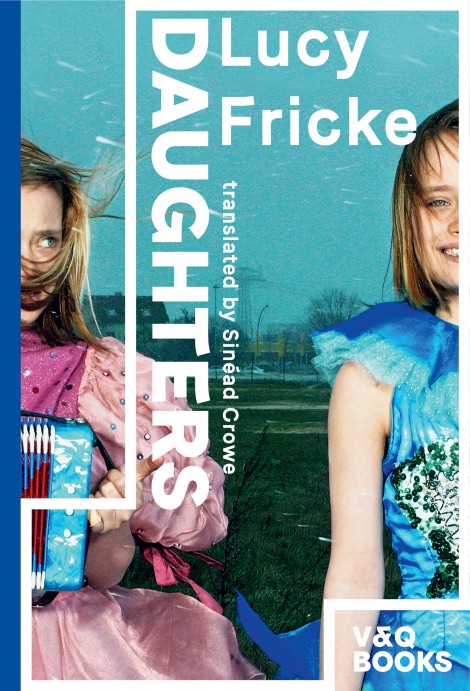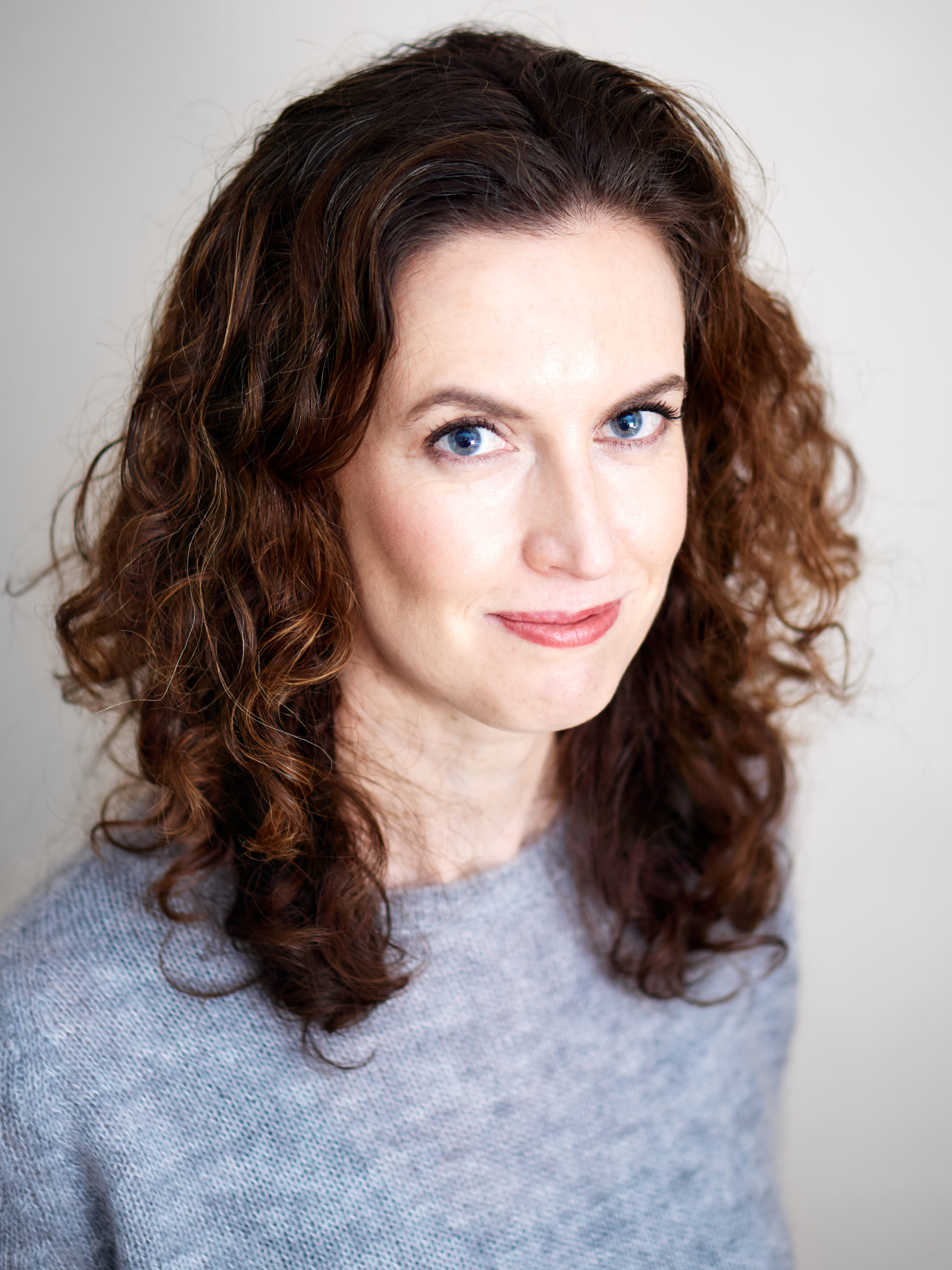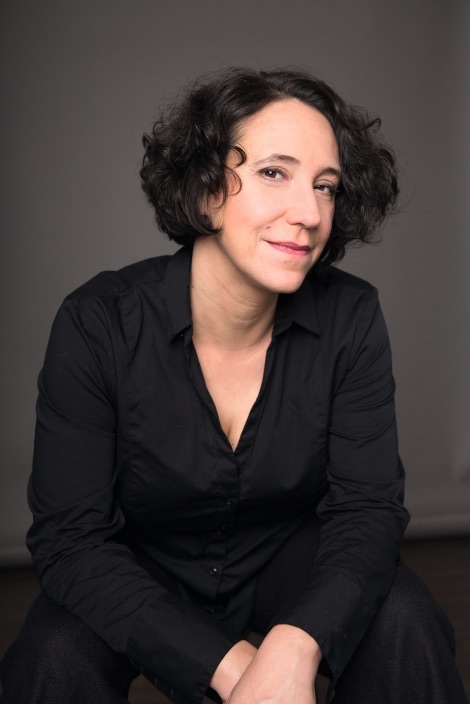
Next up in our series of translators’ notes is Sinéad Crowe, who translated Lucy Fricke’s great European road novel Daughters for our very first season. The joys and challenges of rendering humour are something many literary translators can relate to – along with anyone who’s ever tried to re-tell a joke to a new audience…



I first encountered Betty, Martha and Kurt, the sardonic, intractable protagonists of Daughters, at HAM.LIT, Hamburg’s annual festival of contemporary German literature and music, in February 2018. A large crowd had gathered in the darkened auditorium of a nightclub, bottles of beer in hand, to hear Lucy Fricke read from her new novel for the first time. Lucy chose one of the book’s early scenes: Betty, Martha and Kurt bickering about feminism, money and the perils of dating men with tattoos as they splutter down the autobahn towards a euthanasia clinic in Switzerland. It didn’t take long for the audience’s reverent hush to dissolve into gales of laughter at the gallows humour. Glancing at the people creasing up around me, I thought about how I’d love to share this uproarious side of German literature, so underrepresented in the English-speaking book market, with readers back home. I bought the book right after the festival, and reading – or rather devouring – strengthened my desire to share this wise and witty tale with readers outside Germany. The question was, would I be able to find a publisher willing to take a risk on a German novel that dared to be funny? Imagine my delight when around a year later, I received an email from V&Q Books telling me they had secured the translation rights for Daughters and would like me to do the honours.
Once the initial elation subsided, though, the self-doubt began to creep in. Humour is widely considered one of the most difficult things to translate. Would someone as tragically unfunny as myself be able to render the novel as witty in English as it is in German? I pictured my translation as a bad stand-up comedian delivering dud one-liners to a heckling audience. Rereading the novel only deepened my trepidation as I realised how much of the humour is rooted in a specifically German context. What was I going to do with the references to the dive bars of Hamburg’s St Pauli, the gentrification of Berlin’s Kreuzberg and the fashion choices of the residents of Marzahn? What about the gentle mocking of the romanticisation of Italy and Greece by the postwar generation of Germans? How would I translate the joke about becoming a Tussi, a derogatory term for a certain kind of aspirational German woman for which I have never been able to find a satisfactory English equivalent? How would I manage the allusions to the bland department store Karstadt and the talk-show host Sandra Maischberger? Would English-speaking readers understand the various sociocultural connotations of beer, schnapps and Aperol Spritzes? Should I provide glosses to help them get the punchlines? No, that wouldn’t work; everyone knows that a joke ceases to be funny the moment you try to explain it. And then there was the wordplay and neologisms (such as Betty’s characterisation of the tightly wound Martha as a Linksheulerin, someone who only cries out of her left eye), not to mention Kurt’s ridiculous northern German pet names for his daughter. Every time I came across another instance of Lucy’s linguistic inventiveness, I gulped.
But as Betty points out, sometimes when a difficult journey lies ahead, you just have to say, “Let’s go.” So I got going, in the hope that I would figure out how to circumnavigate the roadblocks as I went along. And once I did start translating, I found the voices of Lucy’s characters so strong, so authentic and so true to my own experience that the cultural specificities no longer seemed so important. Betty and Martha’s midlife worries about ailing parents, stalled careers, ticking biological clocks and romantic disappointments echoed those of friends of mine back home in Ireland. Not only that, but Betty and Martha talk the way so many women I know talk. The characters’ resilience and refusal to lose their sense of humour, no matter what life throws at them, reminds me of dear friends scattered all over the world. Once I had found the characters’ voices, I realised that the tone and rhythm of their language is often as integral to the humour as the semantic content; after all, any comedian will tell you that it’s all in the delivery. So I focused on getting these aspects right, and solutions to the translation challenges outlined above began to present themselves. Sometimes I “domesticated” the cultural references to make them relatable to non-German readers – so the allusion to the fashion of Marzahn became a line about a trailer park, for example – but very often I found that this wasn’t necessary; the rhythm of the repartee is funny, I think, even if you are not intimately familiar with the culture in which the jokes are rooted. On a rare occasion, I reluctantly opted to let a joke go, feeling that this would be truer to the spirit of Lucy’s novel than forcing the point.
For all that I was concerned to make English-speaking readers laugh, I hope I have also managed to capture the sadness, longing and hope at the core of this story. I have reread the novel countless times by now, yet certain scenes still bring tears to (both) my eyes. Daughters is far more than a collection of dark jokes. At its heart, it is a moving exploration of ageing, loss, family and the consolations of getting drunk with an old friend – themes that will surely resonate with readers far beyond Germany’s borders.